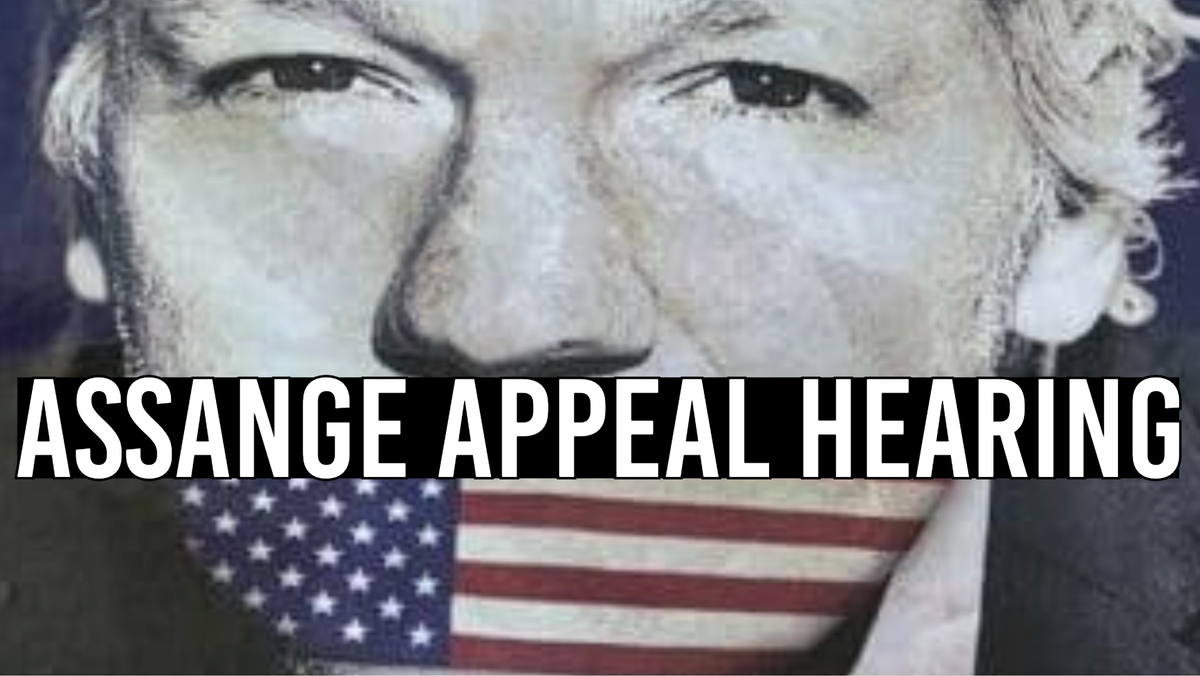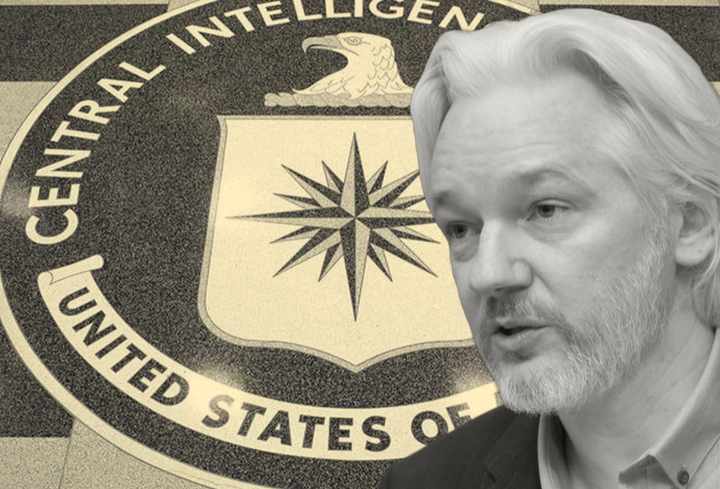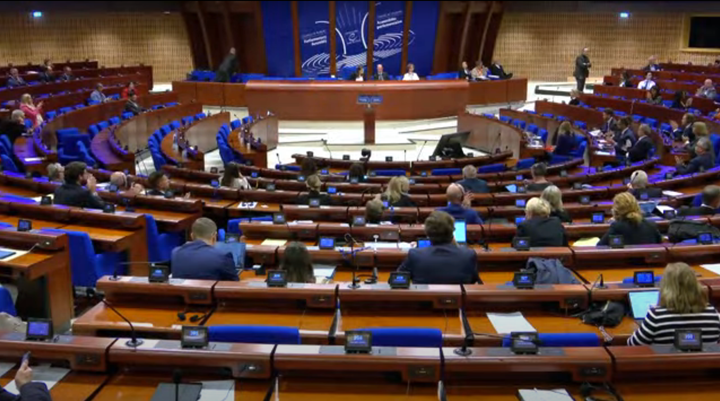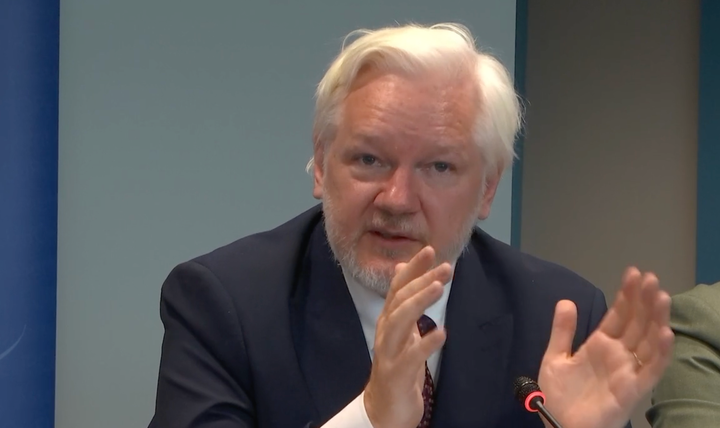UK Appeal Hearing: Assange's Right To A Fair Trial
WikiLeaks founder Julian Assange's legal team has asked the British High Court of Justice to reassess the risks that extradition poses to his right to a fair trial.

Editor’s Note: The following was published as part of a “Countdown To Day X” series highlighting key aspects of WikiLeaks founder Julian Assange’s request to appeal his extradition to the United States.
District Judge Vanessa Baraitser unequivocally stated in her decision on the extradition of WikiLeaks founder Julian Assange that she had “no reason to doubt that the usual constitutional and procedural protections” would be applied by the United States government so that Assange “receives a fair trial.”
However, Assange’s defense rejects the court’s conclusion. During the February 20 hearing, they have asked the British High Court of Justice to reassess the risks that extradition poses to Assange’s right to a fair trial.
Attorneys for Assange are concerned that in the Eastern District of Virginia, where he was charged, a jury will be “drawn from a pool that has a high concentration of defense and intelligence employees and ex-employees, contractors, and their relatives.” The largest employer in Alexandria, Virginia, where the Eastern District courthouse is located, is the U.S. Defense Department.
Gordon Kromberg, the assistant U.S. attorney for the district, claimed [PDF] Assange has nothing to worry about because a district judge will thoroughly question “potential jurors, in the presence of attorneys for both the government and the defendant, to ensure that selection of a fair and impartial jury that is able to set aside any preconceived notions regarding this case.”
But the fact is, as described by the Office of the Director for National Intelligence (ODNI), a National Insider Threat Task Force (NITTF) was established after Assange and WikiLeaks published “thousands of classified documents through the global media and internet.” The task force developed policy, standards, guidance, and training that singled out WikiLeaks as a site that “insider threats” or so-called adversaries would use to harm or injure the U.S. government.
The “thousands of classified documents” that spurred the establishment of this task force are the same documents that Assange has been criminalized for publishing. Given that there are anywhere from two to three million people in government with security clearances, it is hard to believe that anyone who has or has had access to classified information could impartially consider the charges against Assange.
According to the Crown Prosecution Service (CPS), which represents the U.S. government in the extradition proceedings, “the relevant test” for whether a requested person would have their rights violated is “whether the American courts would be bound to conclude that a fair trial is not possible.” Yet that seems rather convoluted.
Extraditions typically are rendered under a treaty or agreement between the U.S. and another nation. If a requested person is extradited to the U.S., then a U.S. court is unlikely to block a trial after a court in a country with such an agreement has approved of the case.
Particularly, the U.S. and the United Kingdom have an extradition treaty. The U.K. has an extradition law that the treaty largely reflects. The U.K. courts review extradition requests with case law and guidance based on the European Convention on Human Rights, and that directs the courts to assess the U.S. court system to ensure that there are no trends, which would infringe upon a person’s right to a fair trial.
Assange’s defense points to the potential for “coercive plea bargaining” and the public denunciations from high-ranking U.S. officials a part of their claim that the WikiLeaks founder would not receive a fair trial. Certainly, it is bothersome that Joe Biden previously called Assange a “high-tech terrorist” and now he is president of the country that is requesting extradition.
Guidance on the right to a fair trial under the European Convention on Human Rights [PDF] mentions that “the choice of words by public officials in their statements before a person has been tried and found guilty of an offense” are important.
Even more troubling is the lack of a public interest defense for defendants accused of violating the Espionage Act. Recent prosecutions that have targeted whistleblowers have barred them from speaking to a judge or jury about why they disclosed information. In this first-of-its-kind prosecution, Assange will likely face a similar restriction that undermines his right to a fair trial by grossly limiting what may be said about why he published documents to WikiLeaks.
Pentagon Papers whistleblower Daniel Ellsberg described for the district judge how had not told the public why he released documents to the press that exposed lies around the Vietnam War. He believed he would be able to testify at his trial about his motives.
In 1973, while on trial, Ellsberg’s lawyer asked why he had copied the Pentagon Papers. The prosecution immediately objected. Each time his lawyer tried to rephrase the question, the court refused to permit him to tell the jury "why he had done what he'd done."
Federal courts continue to handle Espionage Act cases in the same manner. "The notion of motive or extenuating circumstances is irrelevant," Ellsberg told the British court. "The meaning of which is I did not get a fair trial, despite a very intelligent and conscientious judge."
It is also worth acknowledging that the right to a fair trial includes the right to effective legal assistance, and that right is dependent upon “the accused’s right to communicate with his lawyer in private.”
As Baraitser recounted, "The U.S. requested his provisional arrest on 22 December 2017 and an English arrest warrant was issued on the same date. Before that date, he was under no obligation to attend at a police station or court in response to summonses or as a condition of bail.”
The Spanish security company UC Global, which spied on Assange’s meetings with his lawyers and then allegedly shared audio and video with the CIA, was in charge of security at Ecuador’s embassy from 2012 to 2018. For several months while attorney-client privileged conversations were under surveillance, Assange was a defendant.
This type of activity, which allegedly had U.S. intelligence support, is not inconsequential to Assange. It is not reasonable that this issue can be resolved by walling off evidence from spying so that prosecutors do not use this evidence in the case. Prosecutors may employ "parallel construction" to circumvent this supposed wall.
The CIA is allowed to provide input to the U.S. attorney general to help determine the harshness of Assange’s detention. If convicted, they can influence how he is imprisoned. Assange’s mental and physical health is poor, and depending on the abusive nature of his confinement, extradition could mean that he dies in U.S. custody.




Comments ()